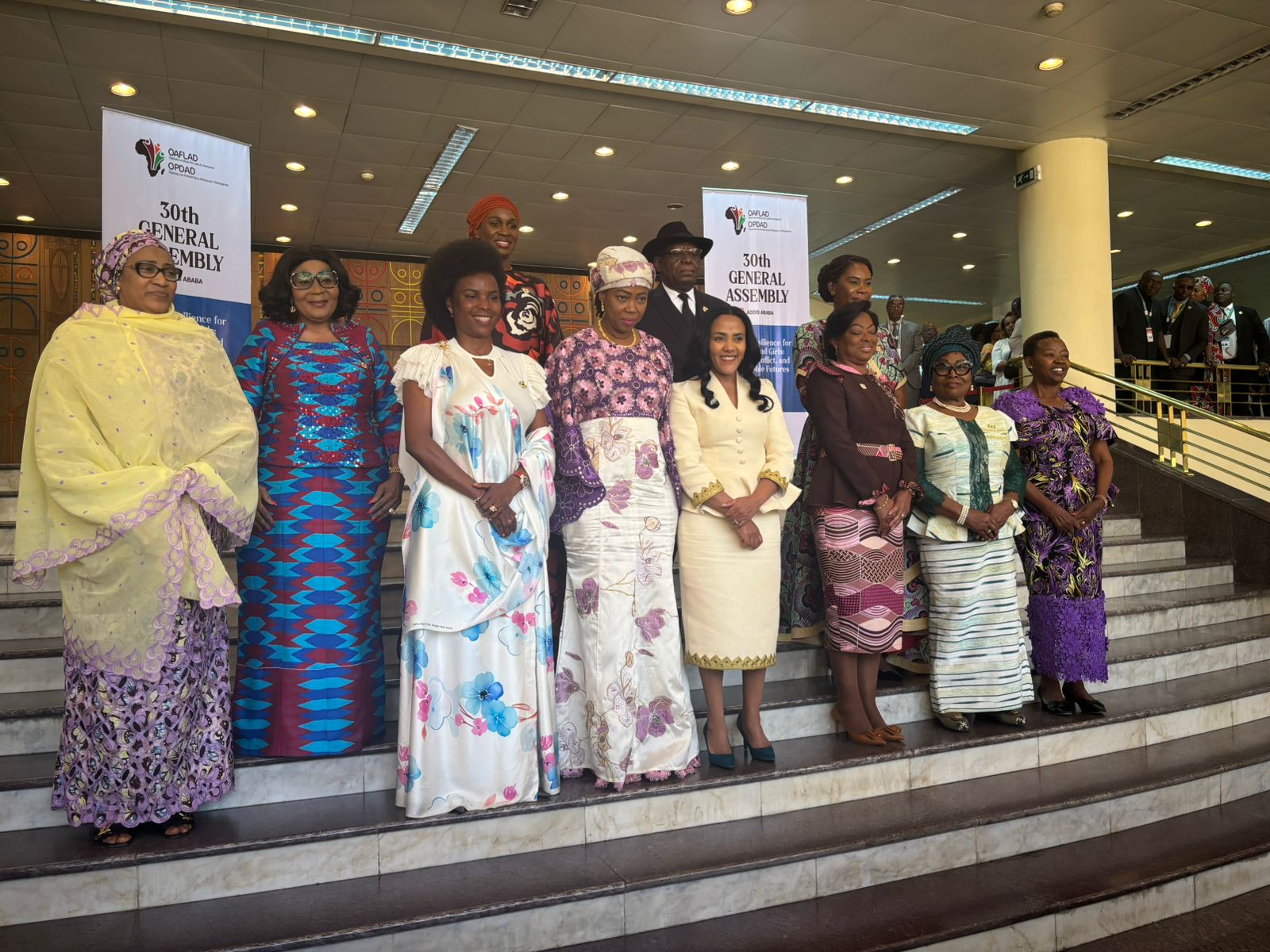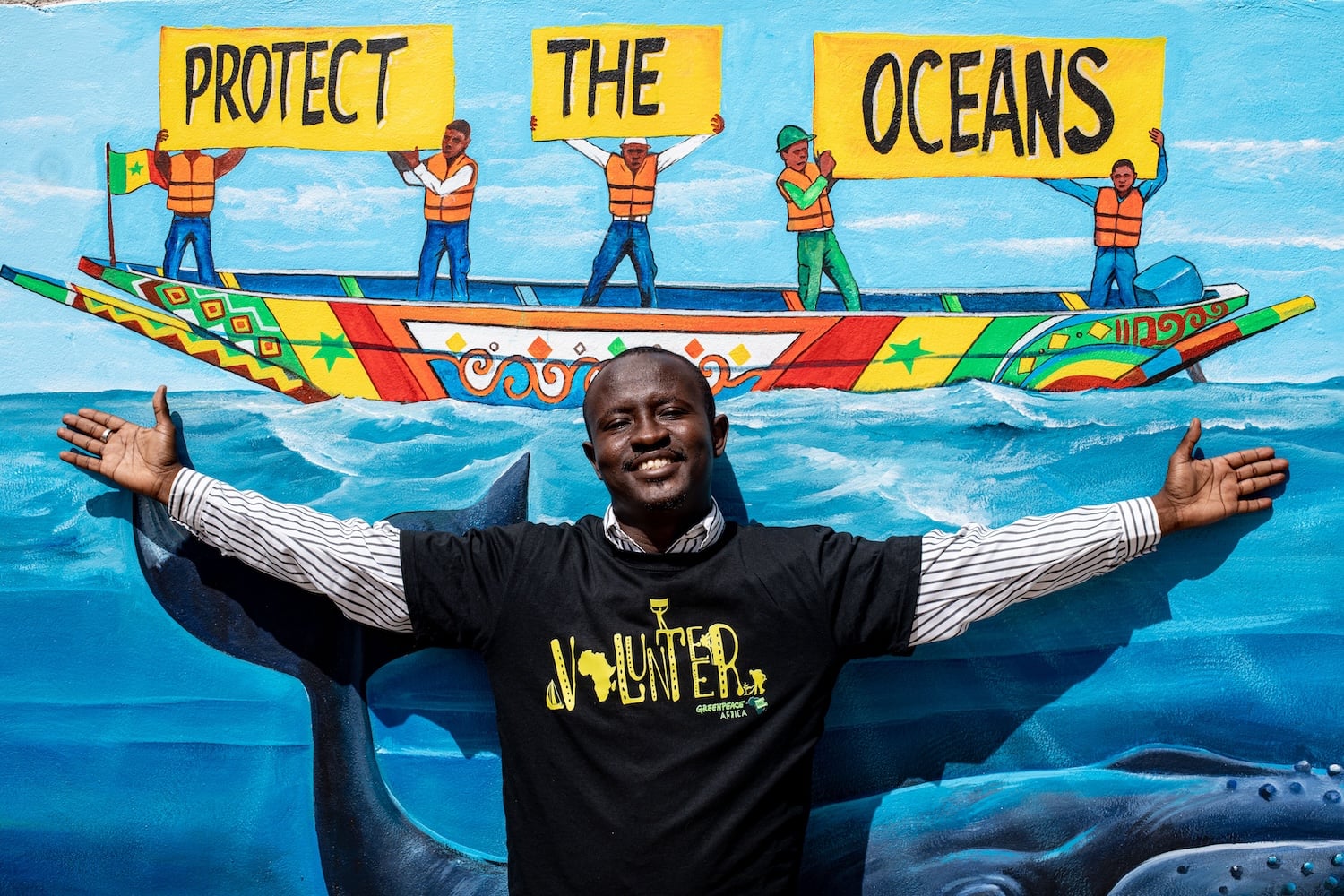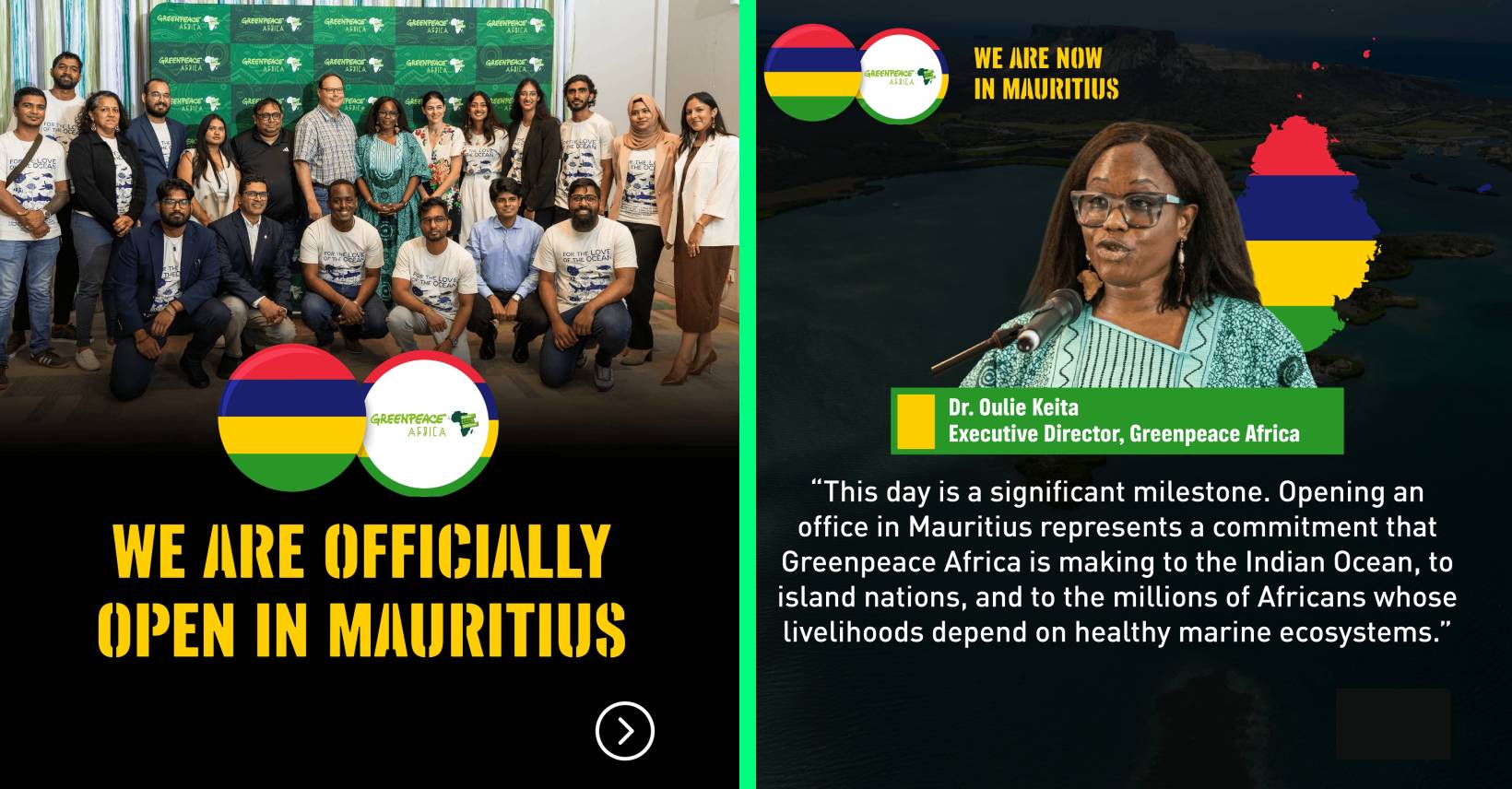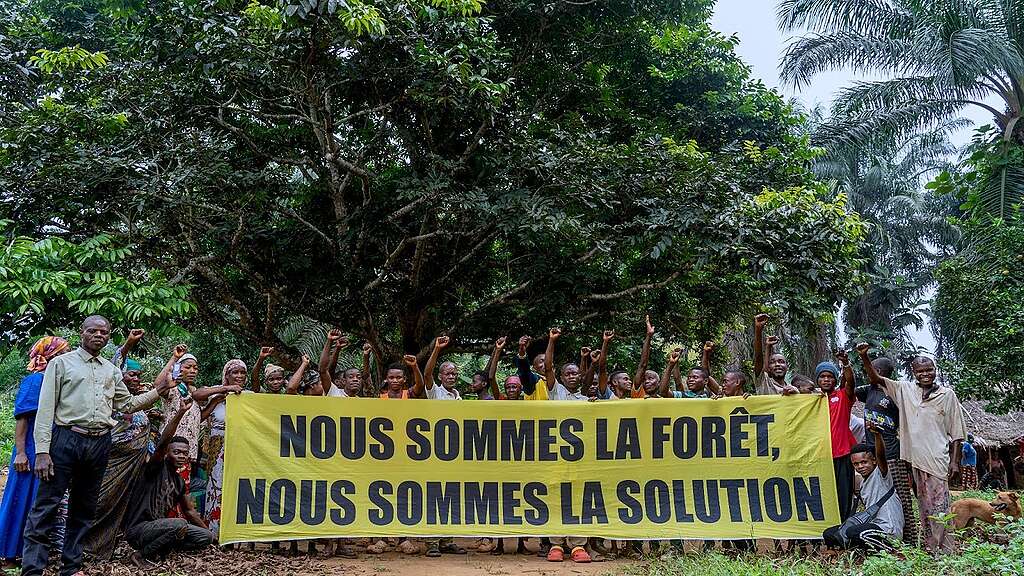
Earlier this month I set off for the village of Lokolama with the Greenpeace Africa team, in to immerse ourselves in the living heritage of Indigenous Peoples. Our goal: to document local forestry solutions and understand how, thanks to their ancestral knowledge, communities protect the forests and peatlands of the Congo Basin.
Traditional practices for sustainable management
The trail opens up before us like a long ribbon of clay. In Lokolama, the forest is not a backdrop: it is a living home, governed by rules, precise gestures, and a shared memory. For three days, I walk, listen, and take notes. Agriculture, traditional fishing, gathering, and hunting are governed by customary rules passed down from generation to generation. What others call “subsistence” here resembles a daily science of sustainability.
A threatened but resilient heritage
Reality quickly catches up with us: impassable roads, scarce tools, growing pressure on the land. And yet, one thing is clear: resilience. The inhabitants know why they protect the peatlands and how to preserve them. They speak without slogans, with the precision of those who live among these immense carbon reserves and protect them, almost innately.
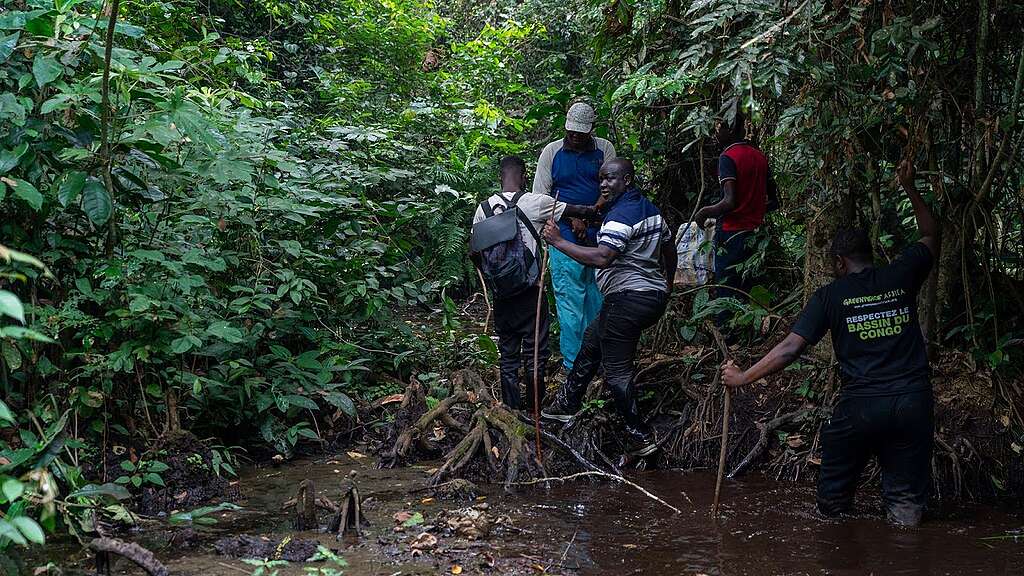
The forest guardians have their say
We conduct interviews with indigenous leaders from Lokolama. Their words resonate as a call to the international community as COP30 approaches:
“We are not just victims. We are the first guardians of the forest and bearers of real and sustainable solutions.”
These testimonies are feeding into the production of a case study on community management of the Lokolama forests, five years after they obtained their legal title.
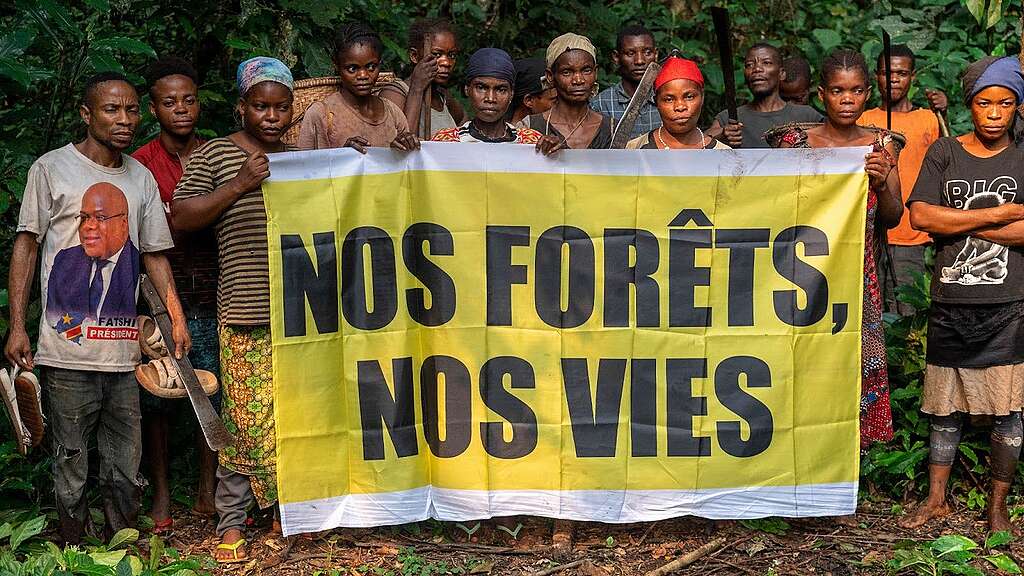
Next stop: Penzélé
I close my notebook at dusk with one certainty: no climate solution will succeed without Indigenous Peoples. At Greenpeace Africa, we are committed to amplifying their voices and building strong alliances so that their rights are finally recognized and protected. Next, we will push further, to a neighbor of Lokolama where dialogue is beginning to heal the wounds of the past: Penzélé.

